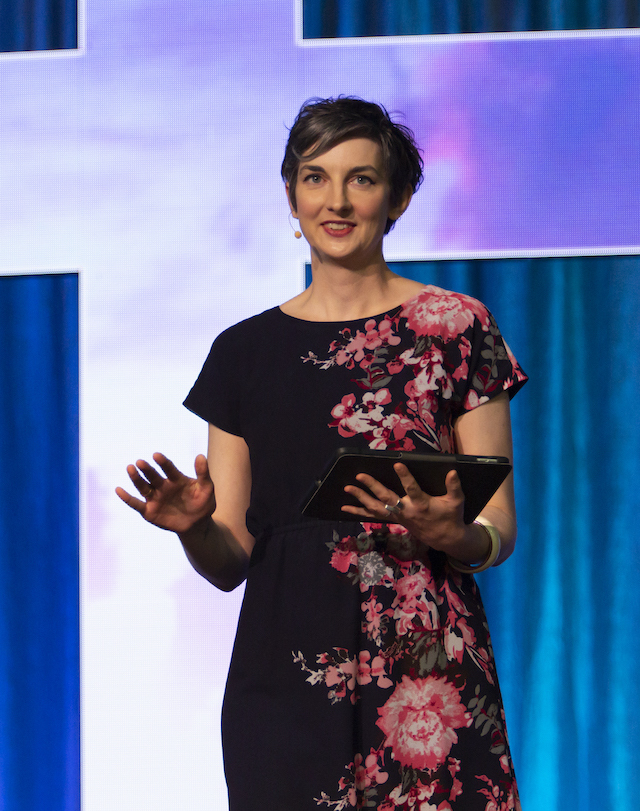
Healing Our Discourse: Consensus-building with Ann Crews Melton
“Agree to disagree” is a phrase most of us are familiar with, but may not understand who made it so well-known, and why. Ann Crews Melton, executive director of the Consensus Council, a non-profit in Bismarck, North Dakota, shared some of her work with attendees at Annual Conference on June 10, 2022.
“John Wesley was the first person to record the phrase “agree to disagree” in English. He referenced this in his memorial sermon for George Whitefield, who had become a famous evangelist of the Great Awakening, even though they disagreed on many things, when Whitefield died, Wesley preached about their friendship and their joint resolve to ‘agree to disagree.’”
Ann shared that John Wesley and George Whitefield, founders of our United Methodist denomination, had a deep theological connection, but some divisive issues stood between them. Although they "agreed to disagree" over those issues, they were lifelong friends and colleagues in ministry, leading by example and respect.Although they agreed on many tenets of our faith, one might wonder how they could disagree on such basic and important concepts as predestination, grace, and even slavery. Crews Melton used this as a relevant foundation for her plea that we learn to listen, which becomes the foundation for any discourse.
“Consensus,” she said, “means everyone present is invited to participate as equal members. It often takes more time to build consensus than using other methods of decision making.” “Somehow, Wesley felt that part of loving God and neighbor was to stay in relationship with Whitefield. I'm not saying we're all called to remain in relationship with those with whom we disagree…. But in this instance, the relationship took priority over all the differences, and both men changed and evolved in their friendship– and I assume their relationships with God, over time.”

She offered four basic guidelines for discernment:
1. Hear from everyone
2. Take your time
3. Listen
4. Trust the process.
She shared that these steps are not easy, but take discipline, time, focus, and trust. The process may not end in a consensus, but without trying, you cannot succeed.
Like Wesley and Whitefield, people in an example from Crews Melton’s home church trusted each other enough to remain in relationship after a divisive time over human sexuality.
She said, in closing, “Sometimes people need the grace to leave or to set boundaries and find sanctuary for themselves. They also need the grace to share their stories or change their minds. What matters most is that we hold space to listen to what God may be saying, whether in quiet reflection and prayer or through the people and community around us.”